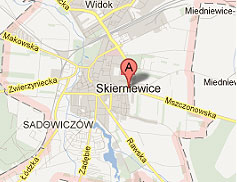PUBLIKACJE NAUKOWE
WYSZUKAJ PUBLIKACJE
Appraisal of artificial screening techniques of tomato to accurately reflect field performance of the late blight resistance.
Nowakowska M., Nowicki M., Kłosińska U., Maciorowski R., Kozik E.U.
2014
PLoS One 9(10): 1-12.
brak
A review of methods used in some European countries for assessing the quality of honey bee queens through their physical characters and the performance of their colonies.
Hatjina F., Bieńkowska M., Charistos L., Chlebo R., Costa C., Dražić M. M.,Filipi J., Gregorc A., Ivanowa E. N., Kezić N., Kopernicky J., Kryger P., Lodesani M., Lokar V., Mladenowic M., Panasiuk B., Petrov P. P., Rašić S., Smodis Skler M.I., Vejsnæs F., Wilde J.
2014
Journal of Apicultural Research 53(3): 337-363.
honey bee, queen quality, breeding, spermathecal, ovary, ovariole, spermatozoa, performance, population, brood, honey production swarming, defence, calmness, disease prevalence
A study on the possibility of limiting damage to fruit by the apple sawfly (Hoplocampa testudinea Klug) in organic apple orchard.
Danelski W., Badowska-Czubik T., Rozpara E., Pniak M.
2014
Journal of Research and Applications in Agricultural Engineering 59(3): 27-30.
organic orchard, Hoplocampa testudinea Klug, Quassia amara, NeemAzal-T/S, experimentation
Badania prototypowego rozwiązania komory składowej marchwi.
Mizera G., Butrymowicz D., Karwacki J., Grzegorzewska M., Adamicki F.
2014
Technika Chłodnicza i Klimatyzacyjna 3: 99-106.
marchew, chłodzenie warzyw, komory chłodnicze, carrots, cooling vegetables, cold rooms
Badania z zakresu ekologicznej ochrony jabłoni przed szkodnikami.
1. Danelski W., Badowska-Czubik T.
2014
Współczesne dylematy polskiego rolnictwa III. Zarzecka K., Kondracki S. (Red.) PSW im. Papież Jana Pawła II
Bakterie patogeniczne dla cebuli jako potencjalne zagrożenie dla innych gatunków warzyw.
Kowalska B., Smolińska U.
2014
Zeszyty Naukowe Instytutu Ogrodnictwa 22: 63-71
soft rot, bacteria, pathogenicity, carrot, Chinese cabbage, cauliflower
Bakterie patogenne dla cebuli (Allium cepa L.).
Kowalska B., Smolińska U.
2014
Postępy Mikrobiologii 53(1): 81-86.
rośliny cebulowe, cebula, Allium cepa, choroby bakteryjne, czynniki chorobotworcze, bakterie, Burkholderia cepacia Burkholderia gladioli pv. alliicola, pseudomonas, Serratia plymuthica, Serratia marcescens, Pantoea ananatis, Pectobacterium carotovorum ssp.carotovorum, Dickeya chrysanthemi, Enterobacter cloacae
Bayesian QTL analyses using pedigreed families of an outcrossing species, with application to fruit firmness in apple.
Bink M.C.A.M., Jansen J., Madduri M., Voorrips R.E., Durel C.-E., Kouassi A.B., Laurens F., Mathis F., Gessler C., Gobbin D., Rezzonico F., Patocchi A., Kellerhals M., Boudichevskaia A., Dunemann F., Peil A., Nowicka A., Lata B., Stankiewicz-Kosyl M., Jeziorek K., Pitera E., Soska A., Tomala K., Evans K.M., Fernández-Fernández F., Guerra W., Korbin M., Keller S., Lewandowski M., Plocharski W., Rutkowski K., Zurawicz E., Costa F., Sansavini S., Tartarini S., Komjanc M., Mott D., Antofie A., Lateur M., Rondia A., Gianfranceschi L., van de Weg W.E.
2014
Theoretical and Applied Genetics 127: 1073-1090.
quantitative trait locus, quantitative trait, locus analysis, quantitative trait locus effect, fruit firmness, genomic estimate breeding value
Causes and scale of winter flights in honey bee (Apis mellifera carnica) colonies.
Węgrzynowicz P., Gerula D., Bieńkowska M., Panasiuk B.
2014
Journal of Apicultural Science 58(1): 135-143.
bees fallen as debris, bees flying out in winter, colony overwintering, Nosema spp., Varroa destructor, winter losses of bees
Changes in soil microbial populations after fumigation and alternative methods to control soil-borne diseases. Plant
Sobiczewski P., Meszka B., Bryk H., Malusá E.
2014
Science, Bulgaria LI(6): 79-81.
active steam, biofumigation, chloropicrin, dazomet, metam sodium, 1,3 dichloropropene
INSTYTUT OGRODNICTWA – PAŃSTWOWY INSTYTUT BADAWCZY
Siedziba Dyrekcji
ul. Konstytucji 3 Maja 1/3
96-100 Skierniewice
Tel.: 46 833 22 11 do 13 - Centrala
Fax: 46 833 31 86
e-mail: io@inhort.pl
ul. Pomologiczna 18
96-100 Skierniewice
Tel.: 46 833 20 21 - Centrala, 46 833 42 23 - Centrala
Fax: 46 833 32 28
ZAKŁAD PSZCZELNICTWA
W PUŁAWACH
ul. Kazimierska 2A
24-100 Puławy
Tel.: 81 886 42 08, 81 886 21 64
Fax: 81 886 42 09
e-mail:zaklad.pszczelnictwa@inhort.pl
© Copyright 2011 Instytut Ogrodnictwa, wszystkie prawa zastrzeżone / Kontakt: < Redaktor > < Webmaster >


